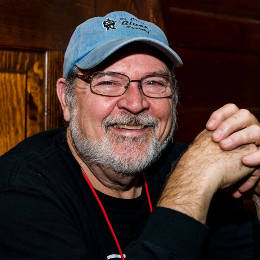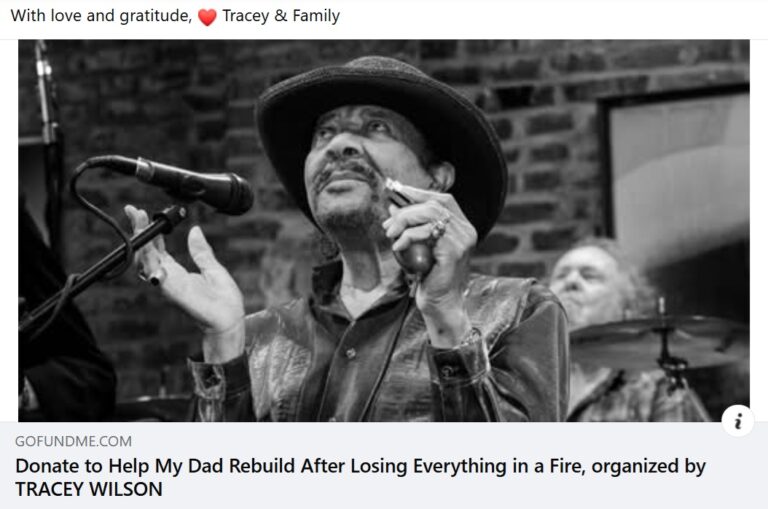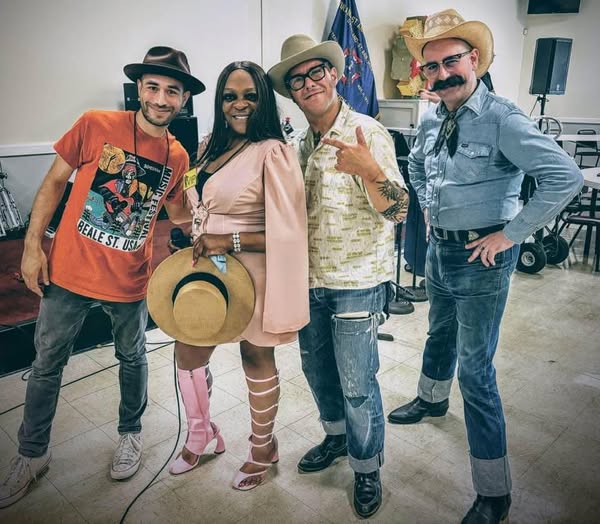By music journalist Bob Baugh
*Coming soon to the pages of Big City R&B magazine
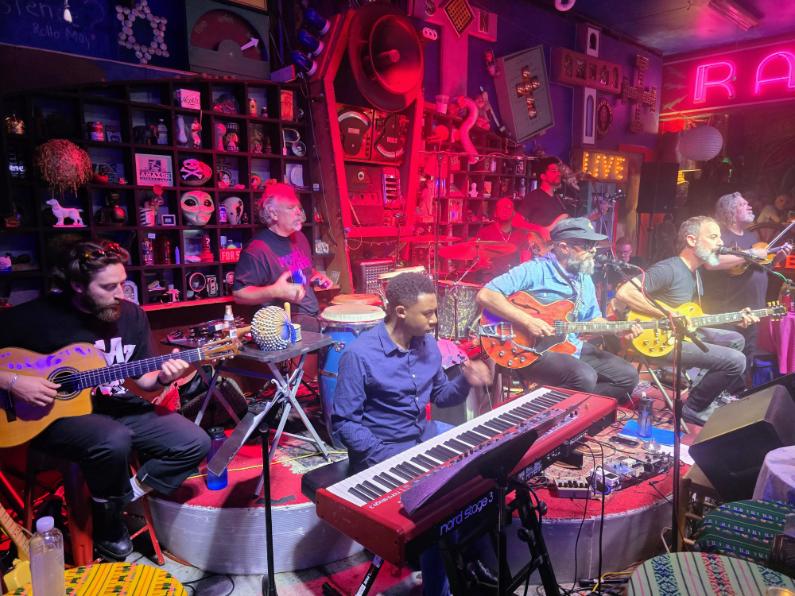
Tornado relief fundraiser - Brothers Lazaroff at Joe's Cafe
At 2:45 pm on May 16,2025 all the cell phone alarms and tornado sirens in the St. Louis metro area went off. Our neighborhood quickly went dark as winds whipped the trees and bushes. Suddenly, as we headed to the basement, everything stopped moving, no winds, just silence. My brain whispered, Uh Oh, that’s not good. Moments later heard hail and winds moaning. Then, just as quickly as it had started it was gone, and the sun came out. The many small branches and leaves in the yard belied the hell that had landed a half mile away.
The one clue we had was Alonzo Townsend’s Facebook post that popped up while we sheltered in the basement. Alonzo is a local music promoter, officer of the STL Blues Society and son of the legendary bluesman Henry Townsend (1909-2006). He had just returned home from the BMA events in Memphis where he represented his father as a 2025 inductee into the Blues Hall of Fame. Alonzo’s post was chilling: “Just lost my whole house from this tornado. A whole entire tree just fell through my living room while I was literally sitting on my couch. But God covered me.” In the days that followed with the help of friends and volunteers he was able to salvage the awards, pictures, instruments and music that is the legacy of his father’s career. His was the first of many heartbreaking and heartwarming stories that would come from this disaster.
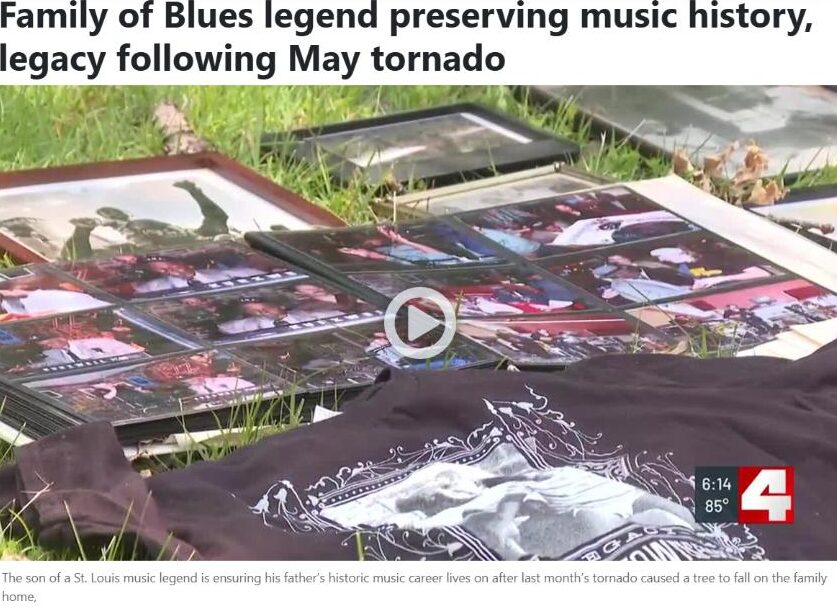
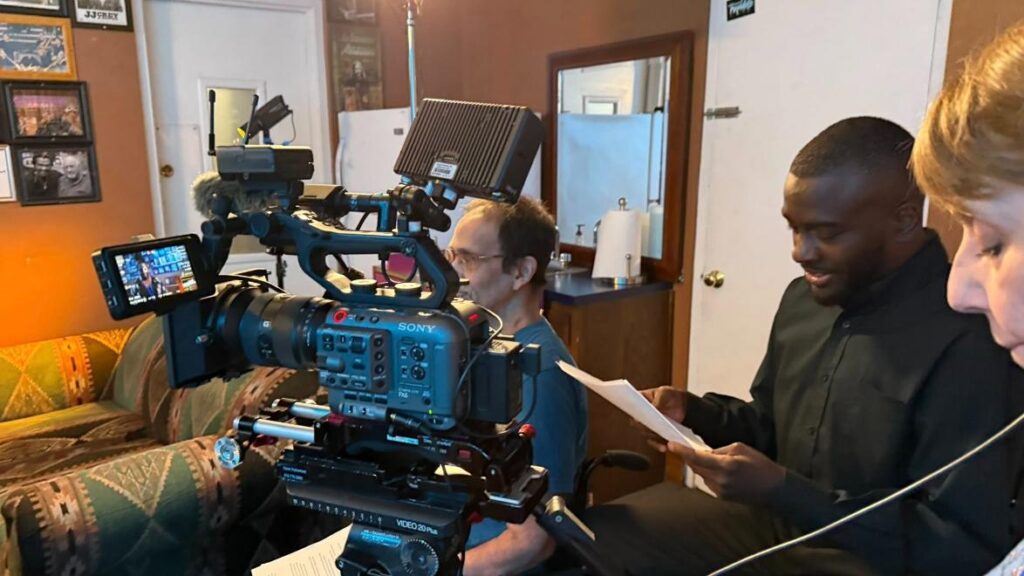
> Publishers note: Alonzo persevered through it all, and kept his golden documentary project “Mother Blues” rolling on as it took his film crew to Kansas City to capture and film another game-changing artist, 2025 Grammy Award Winner & a true game-changing trailblazer, Ruthie Foster!
St. Louis is located on tornado alley and had major tornados in 1927 and 1959. This was different. Climate change has led to record warm waters in the Gulf of Mexico that leads to greater atmospheric moisture and more intense storms. May 16 was a monster mile wide F3 super cell moving at 50 mph with 150mph winds that travelled 22 miles through St. Louis and Illinois though rich and poor neighborhoods ripping massive 150-year-old trees out of the ground, snapping power poles, tearing off roofs, walls and leveling three brick thick homes, churches and buildings. There were 5,000 buildings damaged, thousands left homeless and an estimated repair bill of $1.6 billion. It was a miracle that there were only five deaths and thirty-eight hospitalizations.
The days following the storm were a combination of disbelief and people coming together to cope with a community tragedy. Power outages and closed roads would go on for weeks. You could hear the and pain in bluesman Marty Spikener’s voice (Marty Spikener’s On Call Band): “I was at home recovering from eye surgery when it hit. We live in a small valley in the hills, and it skipped over our neighborhood but took out the power lines. People really stepped up by driving through the neighborhood with food, and all kinds of supplies.” He was sad to see that The Harlem Tap Room, a north St. Louis fixture where Skeet Rodgers and the Inner-City Blues Band played, had been destroyed.
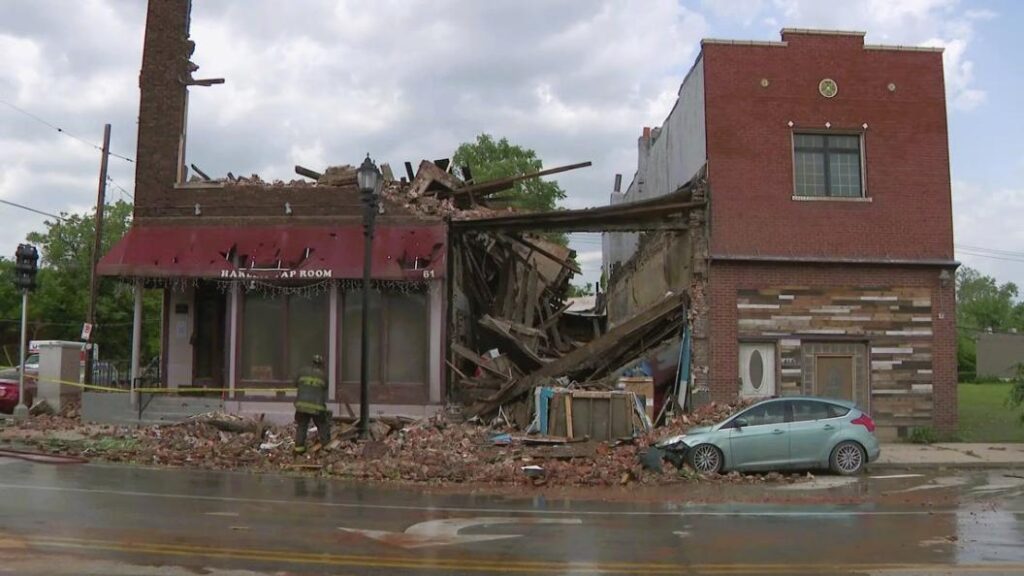
The Harlem Tap Room
Lady J Huston, an award-winning blues/soul vocalist and trumpet player grew up in one of the hardest hit neighborhoods. It is the same part of the city that Big George Brock and Chuck Berry once lived. Her elder aunties still live there. After the storm she immediately jumped into her car and went to rescue them. “When I got near there,” she said, “trees were down all over. There were live electrical wires, bricks and glass all over the streets and buildings destroyed. When I got to my Auntie Joyce’s senior residence the power was out, and I walked up to her third-floor apartment. When she saw Aunt Wanetta, she told me, “I can see the sky in my living room.” Lady J too has been impressed by seeing so many people from all over jumping in to help.
Jacinta Branch-Griffin, better known as Hy-C (Hy-C & Fresh Start 2019 IBC winners) is helping people every day. She was at her job at a regional finance company when the storm hit. Her home was fine but, as she explained, her company found itself on the frontline of the disaster: “Many of our customers live where the tornado hit. Many are legacy homeowners without insurance or ownership paperwork. Many are lower income, and they need financial aid to tide them over and help to get them FEMA and other assistance.”
Alexandra Sinclair, a terrific keyboardist who plays as a soloist and with the high octane Al Holliday and the East Side Rhythm Band, is a music educator. She lived through the storm helping guide her students to the school basement while keeping them calm and protecting them from harm. She said, “it was a terrifying experience, but I am proud of the kids and my coworkers. The saddest part was later learning that so many students had lost their homes and everything.” During Covid Sinclair was part of a program with Jackson Pianos that outfitted a van with a piano enabling her to take music out into the community. They are talking about doing more of that.
The St. Louis music community is always quick to step forward when needed. Fundraising jams to help fellow musicians is a staple in the blues community. John McVey, a guitarist who used to head the house band at Antone’s in Austin had relocated to St. Louis a decade ago. He wanted to help his community: “After the tornado hit, I knew everyone needed to do something to help. I’m too old for the physical stuff but I knew I could play my guitar to help. I approached the owners of Hammerstones in Soulard where I play regularly. They were happy to partner with me on a jam session to raise money.” The Sunday jam, packed with musicians and blues lovers, raised more than $1500.
The Brothers Lazaroff are no strangers to fundraising for good causes. With twelve albums to their credit brothers David and Jeff have built a multi-genre music ensemble of six to fifteen musicians. They did two sell-out benefit concerts at one of the quirkiest venues in town, Joe’s Café at Christman Studios. The stellar eight-piece band treated the audience to a preview of their upcoming album release which will be a mix of blues, jazz and Americana. The Brothers also pressed their extensive network of fans to go to a Gofundme site. Their concerts and online work raised over $10,000.
Every sector of the music community has joined in. Most recently, the musicians of the Symphony Orchestra with their extensive network of donors held a fundraiser at the Fabulous Fox Theater that raised over $350,000. The Community Gospel Choir raised $2,000 at an outdoor concert and they are now working with New Sunny Mount Missionary Baptist Church and others on a September benefit. Big or small every effort counts. Each one takes leadership and networking.
The “Turn On Your Heart Light!” concerts at the Kirkwood performing Arts Center exemplifies that networking and goodwill. It began with Mitzi McDonald, a singer/songwriter, serial fundraiser and leader of the Irish music group Keltic Reign. She has been doing benefits for the Annie Malone Child and Family Services for twenty years. “I woke up Sunday morning after the tornado,” she recounted, “and knew I needed to help. So, I went to church and announced that I would be organizing a benefit concert. I didn’t know where when or who could, but I knew I needed to do it.” Her first call was to her friend Andrea Morse, a jazz influenced blues bass player and music producer who is a member of Marty Spikener’s On Call Band. She had produced McDonalds latest album, Mitzi McDonald and the Laws of Music, in her studio. Andrea responded immediately, “you know I have all kinds of equipment and can provide the entire back line.” They were off and running.
McDonald set off seeking sponsors, bugging city hall for the use of the Kirkwood Performing Arts Center and recruiting bands. Morse suggested the Kingdom Brothers a popular staple of the St. Louis blues scene. Mitzi was unfamiliar with them but trusted Andrea’s judgement. Morse reached out to the bands vocalist and guitarist Chris Shepherd who immediately said yes. So did many others, so many so that McDonald asked the city for two nights. The first show was dedicated to the Annie Malone organization and the second night for 100 Roofs. The latter is a wonderful example of how people have come together. After the tornado two roofing contractors shut down their businesses and went to work in the disaster area putting up tarps to save homes from water damage. Then they set a goal to repair 100 roofs and recruited volunteers to work with them.
Both shows went off without a hitch. The first raised more than $6,000 for Annie Malone and the second over $10,000 for 100 Roofs. The Kingdom Brothers were part of the second show. Morse was thrilled with both nights but especially the Kingdom Brothers performance. As she put it, “we had some good bands, but The Kingdom Brothers really brought it. They dropped national act quality set on the room. They owned the place. The crowd got on their feet and were singing the response lines to “Going home to St. Louis at the finale.”
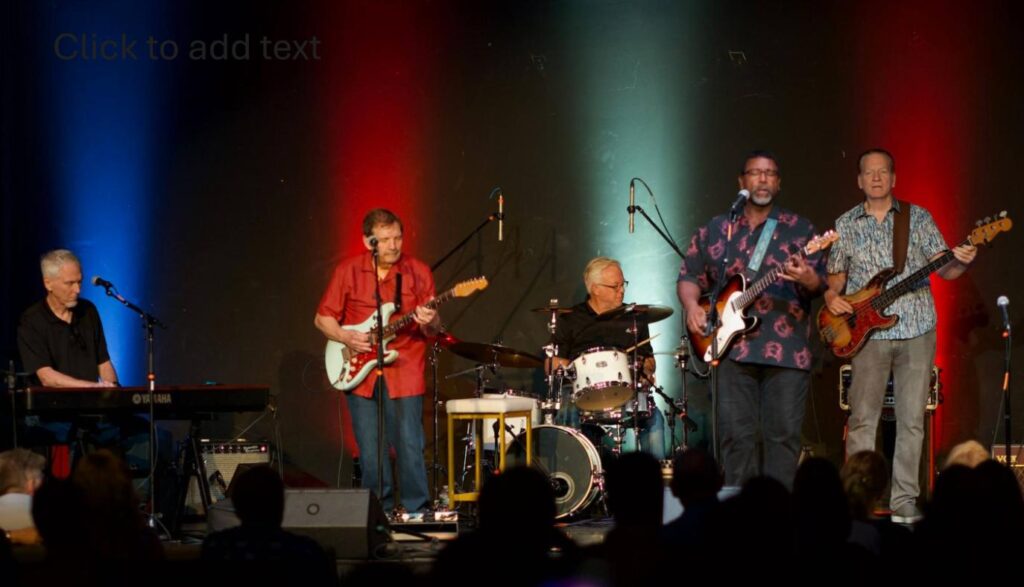
Kingdom Brothers
That was the right way to end the fundraiser and this story. St. Louis is our home. How we take care of it when a natural disaster occurs defines who we are as a community. Music can both heal the soul and bring people together to help others. The St. Louis blues community has been doing that in multiple ways. Let the healing begin.
